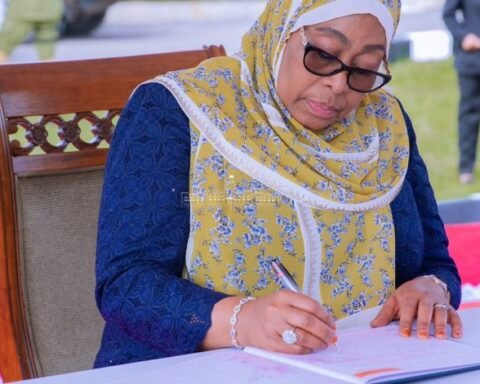The push to equip young people with practical, job-ready skills has taken a new turn after the government ordered vocational training centres across the country to revive short courses in agriculture and livestock keeping—programmes that had previously been discontinued despite their importance to many communities.
The directive was issued on November 26, 2025, by the Deputy Minister for Education, Science and Technology, Wanu Hafidh Ameir, during a visit to the VETA Chemba training centre in the Central Zone. Her tour also marked the start of a nationwide distribution of new training equipment to 63 vocational colleges, a step aimed at strengthening hands-on learning and improving the employability of graduates.
Ameir said the decision to bring back the agricultural and livestock courses was influenced by the reality that many young people, especially in rural areas, depend on these fields for livelihood opportunities. By gaining practical skills, she noted, graduates will be better placed to start small businesses, improve local production, and contribute to economic growth in their communities.
She highlighted that vocational training remains a key engine in the country’s long-term development ambitions, particularly as the economy continues to shift toward industrial growth and new investment opportunities. With factories and production centres expanding, she said, the country will increasingly require a capable and well-trained workforce to sustain progress.
The Deputy Minister also encouraged training centres to widen their focus and incorporate modern, technology-driven subjects. She pointed out that the global move toward a digital economy demands new competencies, including skills linked to Artificial Intelligence, robotics, and advanced digital tools. Preparing young people for these emerging sectors, she added, will help the nation remain competitive in a fast-changing world.
According to Ameir, the government has already committed to supplying modern learning equipment to vocational institutions to ensure that training standards align with labour market expectations, both locally and internationally. She urged colleges to maintain strong teaching quality and remain responsive to new trends in employment.
Also Read; Tanzania Leader Rejects Class-Based Society Concept
She further noted that Tanzania’s ongoing industrial and economic progress—driven in part by new investments and the establishment of factories—must be supported by a skilled labour force. Industrial expansion, she cautioned, cannot stand on its own without people who possess the technical knowledge to drive it forward. The broader objective, she said, is to support national development plans and long-term growth strategies tied to the country’s future.
Agriculture continues to play a central role in the national economy, providing employment for a significant portion of the population. The revival of short courses in farming and livestock is expected to create new paths for self-employment and expand opportunities in agribusiness, especially for young people who may not enter formal employment immediately after school. The sector itself is a core component of national development, forming part of the backbone of Tanzania and its food production systems.
The vocational training sector is overseen by the national Vocational Education and Training Authority, which manages skills development across various regions. With the rollout of equipment now underway, training centres are expected to begin preparing for the return of the discontinued courses while also expanding programmes linked to new technologies.
The directive signals a renewed commitment to closing the skills gap, encouraging youth entrepreneurship, and developing a workforce ready to meet the demands of a modern, evolving economy.







